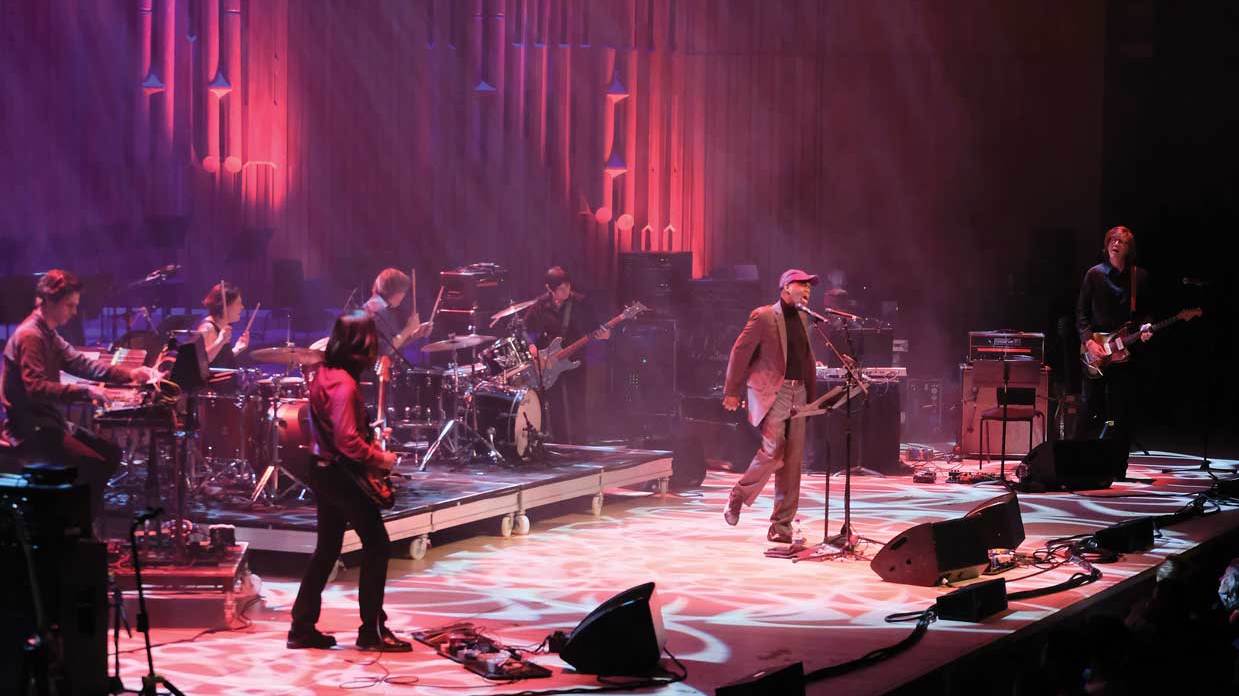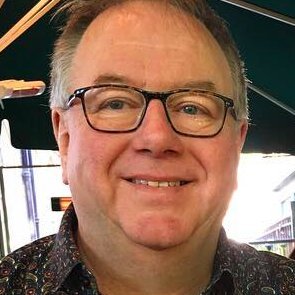Irmin Schmidt had originally envisaged a career as an orchestral conductor until he applied himself to unlearning that tradition in the late 60s with Can. Since the group’s demise, he has become established as a composer – particularly of soundtracks – and tonight he conducts the London Symphony Orchestra in Can Dialog, co-composed with Gregor Schwellenbach.
Although based on pieces by the group, it’s a long way from the sort of tacked-on orchestrations that bedevil the worst of this kind of venture. Indeed, Schmidt proves his bandmate Holger Czukay’s old maxim that no piece by Can is ever finished by subtly weaving themes into these orchestral fantasias, which at times are rhythmically akin to minimalists like Steve Reich or John Adams, with spikier elements reminiscent of Bartók, Stravinsky and Charles Ives. The version of Halleluwah is only recognisable when the tuba plays the bass line, prompting the woodwind to spiral off like Schmidt’s keyboards on the record. On Spoon, sweeping atonal string glissandi are etched with sharp, bright brass. La Fermosa, a Schmidt original, is cut from similar cloth.
The Can Project decided to play on without drummer Jaki Liebezeit, who sadly died in January. The group is Deb Googe (My Bloody Valentine) on bass, James Sedwards (Guapo) on guitar, Pat Thomas on keys, The Oscillation’s Tom Relleen on electronics and Valentina Magaletti on drums. Steve Shelley is also on drums, and his former Sonic Youth bandmate, guitarist Thurston Moore, is musical director. Vocalist Malcolm Mooney heads the band.
Not only is no Can piece ever finished, they’ve always had a unsentimental view of their back catalogue, so it’s fair game. Their set starts with Outside My Door then Father Cannot Yell, The Thief, and a thrilling, relentless version of Uphill. A few fans, though, are left scratching their heads to Deadly Doris, a Mooney-era outtake only recently unearthed.
But as the set continues, the double drum line-up – which works brilliantly on Mother Sky – comes across as heavy-handed in places compared to the lean, hypnotic playing on the original songs. With a combination of electronics, keyboards and some flamboyant guitar, the stage is awash with sound. The person next to me says, “I’ve taken a load of drugs and it’s not doing it for me. Sounds like a cross between the Stooges and Hawkwind.” It’s certainly a combination that appeals to this writer.
The evening peaks with the rotating polyrhythms of Yoo Doo Right, as Mooney, who has sung convincingly throughout, shimmies around the stage, inhabiting the music. “This is much better,” says my neighbour. He is right.

